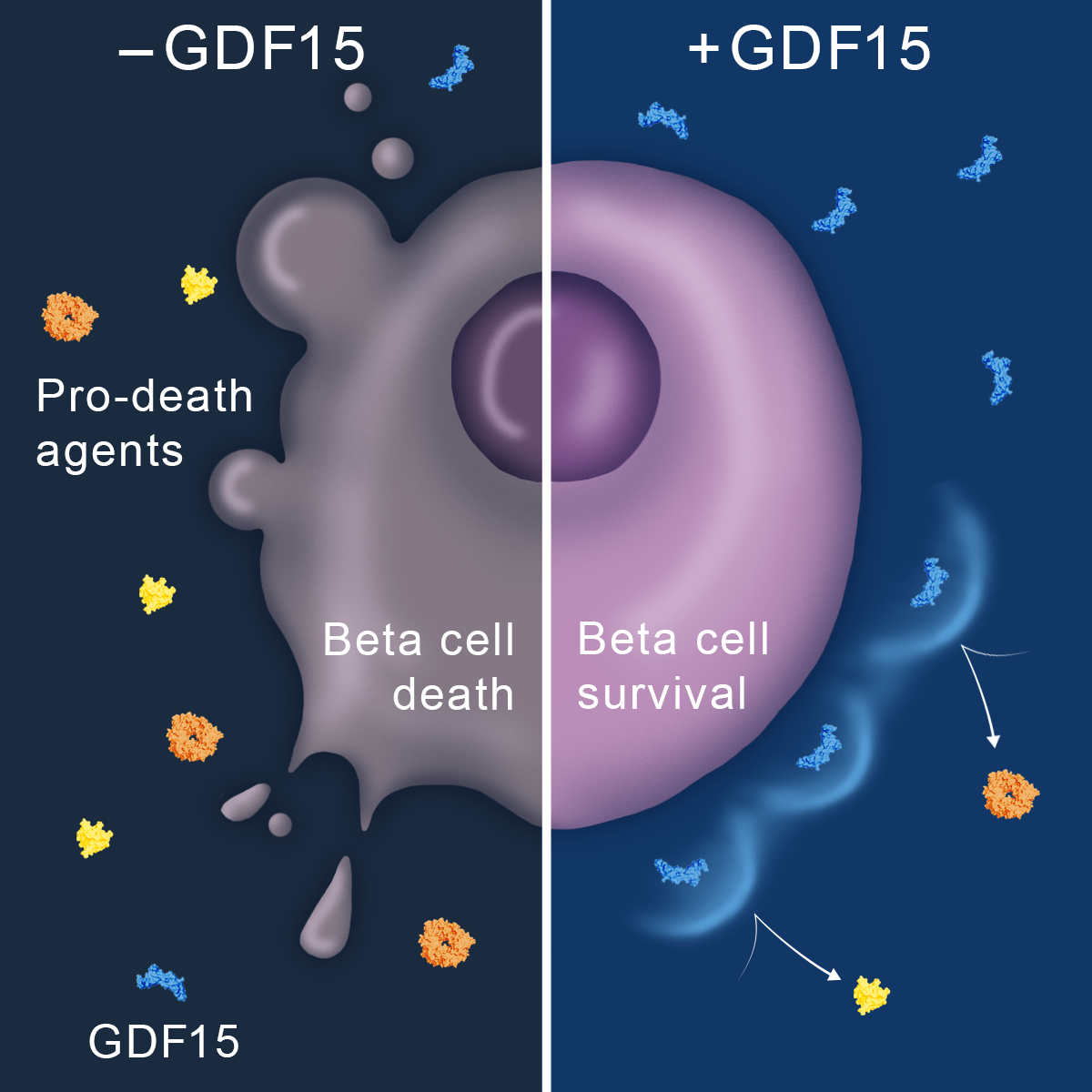Type 2 diabetes drug could prevent hospitalization and death from COVID-19 -Study
A type 2 diabetes drug could decrease the risk of hospitalization or death if taken months before COVID-19 infection, a new study finds. Researchers at Pennsylvania State University found that type 2 diabetes patients using glucagon-like peptide-1 receptor (GLP-1R) agonists to treat their condition had better health outcomes if they contracted COVID. GLP-1R agonists are […]

Inflammatory agents deplete growth differentiation factor 15 (GDF15) and kill susceptible beta cells to cause type 1 diabetes. Adding back GDF15 protects beta cells in treated mice.
A type 2 diabetes drug could decrease the risk of hospitalization or death if taken months before COVID-19 infection, a new study finds.
Researchers at Pennsylvania State University found that type 2 diabetes patients using glucagon-like peptide-1 receptor (GLP-1R) agonists to treat their condition had better health outcomes if they contracted COVID.
GLP-1R agonists are a class of drugs with anti-inflammation properties often used to treat the swelling of body tissue some diabetics face.
Type 2 diabetes patients who had been taking the drug were 33 percent less likely to be hospitalized and 42 percent less likely to die within 28 days of COVID-19 infection.
Diabetes patients are at an increased risk of complications caused by COVID making these findings promising news for diabetics in America.
Researchers, who published their findings in the Diabetes journal, gathered data from 30,000 type 2 diabetes patients that contracted COVID between January and September 2020.
They compared rates of patients using GLP-1R agonists to a control group of over 23,000 participants.
Pioglitazone showed the ability to prevent hospitalizations, but little to prevent deaths in the most severe cases.
GLP-1R agonists, which also showed the ability to prevent respiratory side effects by 38 percent, were the most effective and the only ones that lowered the risk of death.
The researchers are optimistic about the findings but want to see more data from the drug before they deem it a true COVID treatment.
“Further research is needed to confirm whether GLP-1R agonists can protect against severe COVID-19 complications,” said Dr Nazia Raja-Khan, co-author of the study and associate professor of medicine at Penn State, said in a statement.
The team is calling for randomized clinical trials to be conducted to test the drugs’ ability to prevent the most serious cases of COVID-19.
Researchers still recommend the COVID-19 vaccine, as it is the most effective way to prevent infection, serious complications or death from the virus. (Mail Online)
